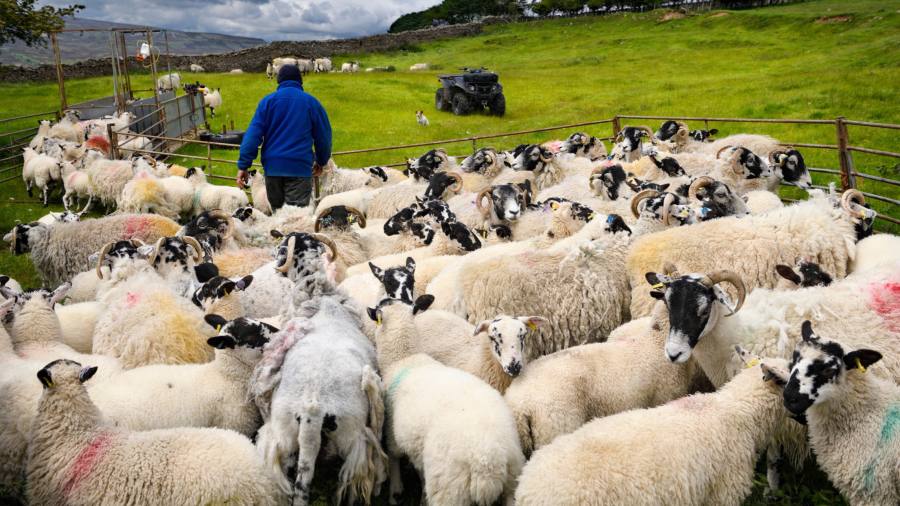
Rishi Sunak’s government is drawing up a radical simplification of the plans for post-Brexit farm payment schemes, leaving farmers frustrated at the fresh uncertainty over the future of their government income.
Officials from the Department for Environment, Food and Rural Affairs showed farming and nature groups an outline of the overhaul of the new cash support for environmental work in a meeting on Tuesday.
According to three attendees, these include replacing “local nature recovery” — one of the more ambitious tranches of the government’s original proposals, designed to restore nature across a local area — with an upgraded version of “countryside stewardship”. That is a decades-old scheme dating from when the UK was a member of the EU.
The government also intends to reorganise the “sustainable farming incentive”, which will fund improvements on individual farms. This aims to be the most accessible tranche of the scheme and has already begun its rollout.
But planned payments for areas such as hedgerows and integrated pest management are to be scrapped, with a focus instead on the land types or “assets” being managed.
One person present said the meeting had left farming representatives “bewildered”. “There’s a complete absence of detail . . . There’s very little faith that there’s going to be enough funding to support sustainable businesses going forward.”
The changes are intended to be announced in two weeks’ time at a conference run by the Country Land and Business Association, a landowners’ group, following a review that got under way during Liz Truss’s premiership. It has continued under Sunak’s environment minister Thérèse Coffey and junior minister Mark Spencer.
Farmers had already complained that not enough detail had been given about the schemes — which are designed to allocate £3bn of annual funding — leaving them unable to plan for the future and putting their businesses at risk of becoming unviable. But the latest overhaul leaves even fewer specifics for them to work with, the attendees said.
So-called basic payments, the EU-style funding based on land area, are being phased out, with farmers receiving smaller sums yearly from 2021 through to 2027.
“The basic payments scheme is being run down quite rapidly and that is leaving a lot of farmers, especially upland farmers and lowland livestock farmers, in limbo,” said one attendee, calling for government to “give us a clue before a lot of people go bankrupt”.
The “countryside stewardship” programme “does not have a great name among farmers. It’s very prescriptive and restrictive,” the person added. It is designed to compensate farmers for income they sacrificed by putting in place environmental improvements and reimburse their costs — providing little incentive to change their practices at scale.
Two other people who were at the meeting on behalf of nature groups said they were concerned as to whether the new payment proposals would meet the government’s emissions and biodiversity goals.
They highlighted the proposals to scrap “local nature recovery” and the slow development of “landscape recovery”, previously the most ambitious element of the government’s plans, focused on large-scale restoration schemes.
Ministers have indicated they will look to private funding for at least part of “landscape recovery”.
Farmers said they were frustrated after spending three years working with Defra on plans first conceived under then environment secretary Michael Gove.
“We are no further forward than we were years ago,” another attendee said.
Defra said: “No decisions have been made — we are pressing ahead with our environmental land management schemes and fine-tuning them to make sure they help to deliver our ambitious outcomes on the environment and support a thriving farming sector.”
The department added that it would provide “more details in due course” and was aiming to build on lessons learned from pilot schemes and “countryside stewardship”, in which it said 30,000 farmers were now taking part.